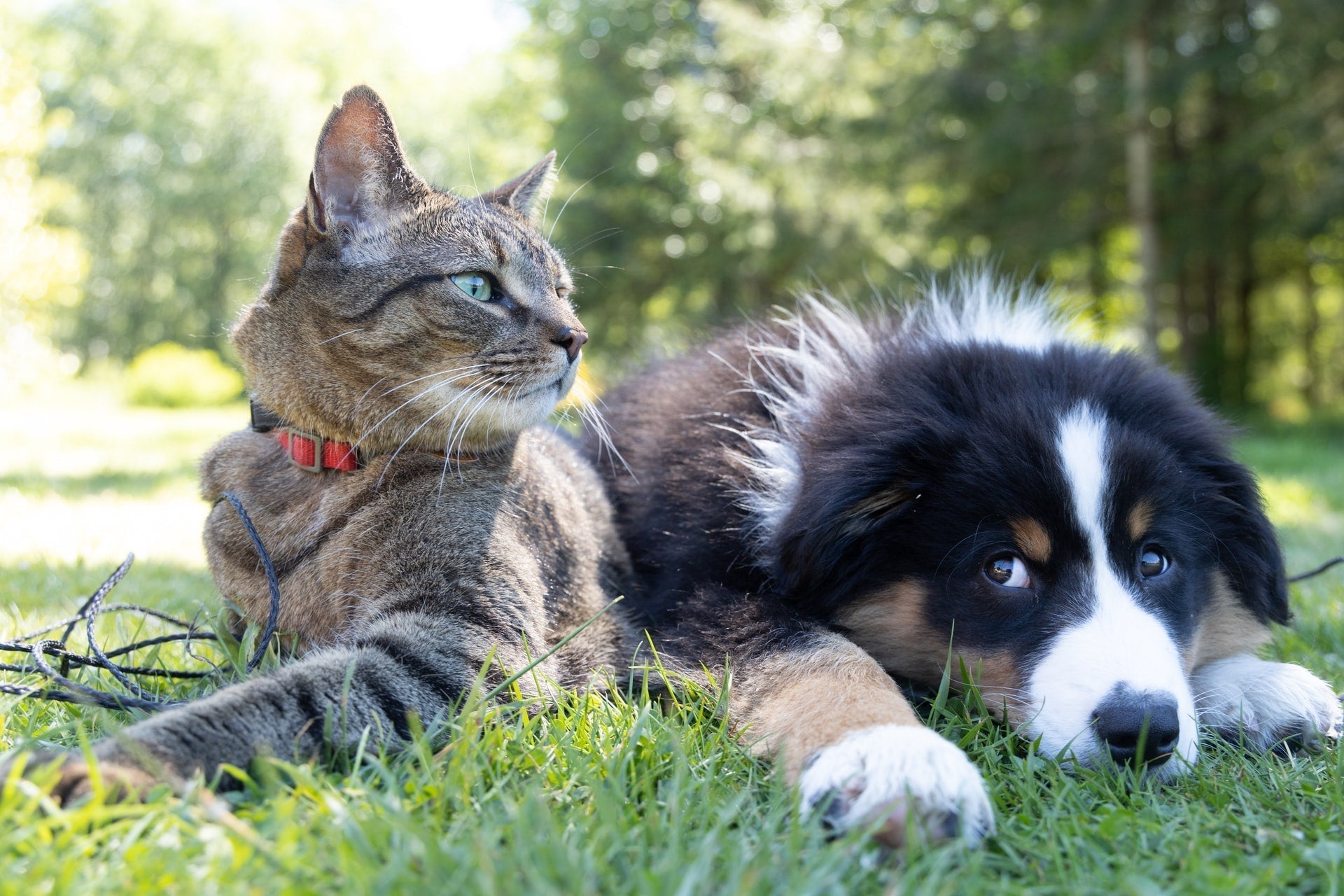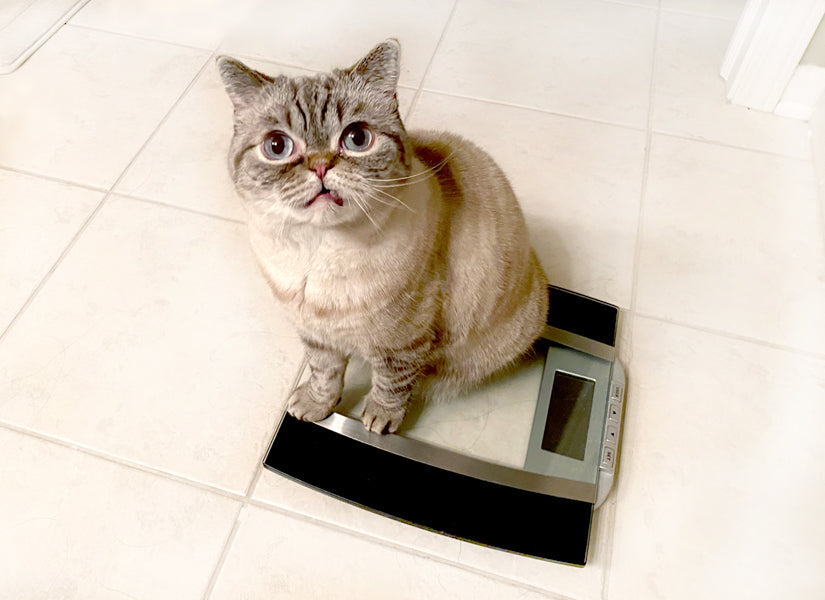The gastrointestinal tract, or GI tract, is an important organ system for all animals. It is made up of many different organs and parts, including the esophagus, stomach, intestines, liver, and pancreas. When the GI tract is injured, pets can develop a variety of gastrointestinal diseases that can cause pain, discomfort, and even death. But in many cases, these diseases can be prevented by taking steps to keep your pet’s GI tract in good shape.
In this blog post, we'll discuss the functions of the GI tract and what happens when it becomes injured. We'll also look at the primary causes of GI tract injury and share some tips to help you keep your pet's GI tract healthy. Finally, we'll explain how to treat GI issues in pets and provide ongoing support and management for their condition.

What Are the Functions of the GI Tract?
The GI tract is responsible for three main functions: digesting food, absorbing nutrients from food and supplements, and preventing toxins from entering the bloodstream. In order to function properly, it relies on a complex ecosystem of bacteria known as the microbiome. And since more than 80% of the immune system resides in the gut, a balanced microbiome is directly linked to your pet's ability to fight disease and remain healthy throughout their lifetime.
What Happens if the GI Tract Is Injured?
The GI tract is integral to your pet's health and wellness, and any injury to this organ system can lead to a variety of issues. These include nutrient malabsorption, systemic inflammation, and a compromised or weakened immune system.
Abnormal motility caused by GI injury can lead to symptoms such as diarrhea, constipation, and bloating. Pets may also develop infections as a result of changes to their gut microbiome. Additionally, GI injury can lead to adverse food reactions that cause a wide range of symptoms.
If these issues are not addressed and managed, a wide range of GI diseases can occur. These include inflammatory bowel disease (IBD), protein-losing enteropathies, small intestinal bacterial overgrowth (SIBO), ulcerative colitis, irritable bowel syndrome, gastritis, and gastroduodenal ulcers.
GI injury can also affect your pet's emotional and behavioral health as they experience the physical discomfort associated with their condition. Symptoms such as pain or nausea may lead them to become irritable, lethargic, withdrawn, or even aggressive toward family members or other pets in the home.
What Are the Primary Causes of GI Tract Injury?
While GI injuries can be caused by a variety of factors, there are 4 primary causes:
- Overuse or unnecessary use of drugs such as steroids, non-steroidal anti-inflammatories (NSAIDs), antibiotics, heavy metals, laxatives, and chemotherapeutics
- Excess exposure to toxins found in products like deworming medications, flea and tick treatments, and pesticides
- Over-vaccination – unnecessary vaccination can compromise the immune system
- Poor diet – diets with food additives, chemical preservatives, or GMOs
Why Prevention Is Key to Maintaining a Healthy GI Tract
As Benjamin Franklin famously said, "An ounce of prevention is worth a pound of cure". While GI issues can seemingly appear overnight, long-term assault on the GI tract often occurs over time. However, there are several steps you can take to protect your pet and prevent or mitigate GI issues:
- Feed a minimally processed, species-appropriate diet. A good diet should contain fresh, natural ingredients, with no chemical preservatives or additives
- Avoid over-vaccination. Instead of routinely vaccinating your pet, choose to perform a titer test and vaccinate only when necessary. Always assess your pet’s health and risk factors before deciding to vaccinate.
- Stop using chemical tick and flea products that contain harmful chemicals and pesticides. Instead, use natural products that have been proven to work.
- Avoid drugs, steroids, and antibiotics whenever possible. Talk to your veterinarian about natural options such as homeopathy, natural herbs, or nutraceuticals instead.
- Avoid using chemical cleaners and environmental pesticides in your home and yard. Instead, use natural products to avoid exposing your pet to harmful toxins.
- Help your pet maintain a healthy body weight by providing regular exercise and optimum activity levels. Physical activity promotes regular GI motility and reduces stress or anxiety that can affect immune system function.
How to Treat GI Issues in Pets
Effective treatment of GI issues in pets depends on an accurate diagnosis. Diagnosing GI disease may be complicated and is highly dependent on clinical signs. For this reason, it's important to describe your pet's symptoms as accurately as possible when consulting with your vet.
Oftentimes, a dietary trial may be necessary due to a lack of diagnostics that is specific to GI disease. In this case, your veterinarian will identify primary issues and develop an appropriate diet plan. Most pets with GI disease have a reduced intake or ability to digest the diet properly, so they may be in a state of energy deficit. It’s important to address your pet’s energy needs immediately to mitigate anorexia or inappetence.
Generally, dietary steps to treat GI issues include:
- Feed a specially formulated diet to address immediate issues. Sometimes these diets are temporary and depend on clinical signs and improvement. Diet options may be specialized or short-term to help reduce gut inflammation and support healing. The Length of these special diets can be 1-2 weeks if symptoms resolve quickly, 2-4 weeks if there are food allergies, or 12 weeks or longer in GI disease that exhibits dermatologic signs, such as itchy skin.
- Stop other foods, supplements, and table scraps when on a trial or elimination diet.
- Maintain hydration by providing fresh, clean water.
Supporting and Managing GI Issues in Pets
If your pet has been diagnosed with a GI issue, it's important to understand that the initial treatment might not resolve all symptoms. After your pet is stabilized, it's crucial to provide supportive care to help manage their condition.
Once the more serious issues have been minimized and controlled, you can support your pet’s GI health by feeding them foods and natural supplements that promote a healthy digestive system. These may include:
Immune enhancers. Prebiotics (FOS, GOS, and MOS) and probiotics are especially beneficial.
- L-Glutamine. An amino acid that acts as a building block in maintaining healthy epithelial cell lining of the gut. L-Glutamine reduces intestinal inflammation and can help animals recover from food sensitivities. Studies show that it is beneficial for leaky gut syndrome as it helps repair and rebuild the intestinal lining of the gut.
- Fiber blend. An all-natural, soluble (fermentable), and insoluble (non-fermentable) fiber such as organic CocoTherapy Coconut Chips is a good source of short-chain fatty acids (SCFAs) and provides food for beneficial bacteria. Fiber also helps regulate healthy motility.
- Fermented foods. Products such as cultured yogurt, kefir, or sauerkraut, can provide beneficial probiotic bacteria and help in eliminating harmful yeast and microbes.
- Vitamin B12. Also known as cobalamin, vitamin B12 is important for the digestive system, as well as energy production and red blood cell production. Pets with malabsorption disorders and gastritis (inflammation of the stomach lining) often have low levels of B12. It may be a good idea to check your pet's B12 levels, and if deficiency is noted, B12 shots or routine supplementation of a highly absorbable B12 may be beneficial.
- Virgin coconut oil. Coconut oil provides an easily digestible source of fat needed for lipid energy and has been shown to support a healthy digestive system. Coconut oil contains medium-chain fatty acids (MCFAs) such as lauric acid. These healthy fats are easily digestible in the gut and help the body to absorb the nutrients and vitamins from food more efficiently. Use a therapeutic-grade, organic, RAW virgin coconut oil for GI issues.
Conclusion
Gastrointestinal diseases are common in dogs and cats, but there are several steps you can take to help prevent them. Make sure to feed your pet a healthy diet, provide regular exercise, and avoid unnecessary exposure to medications, vaccinations, and chemical toxins.
If your pet is suffering from a GI issue, it's important to consult with your vet so they can be properly diagnosed and treated. Dietary modification is often the first step in managing these conditions, but nutritional support and natural remedies are also beneficial for supporting the health of your pet's GI tract.
For more information about GI issues in pets, check out our previous blog post, Coconut Oil and Gastrointestinal Disorders.



